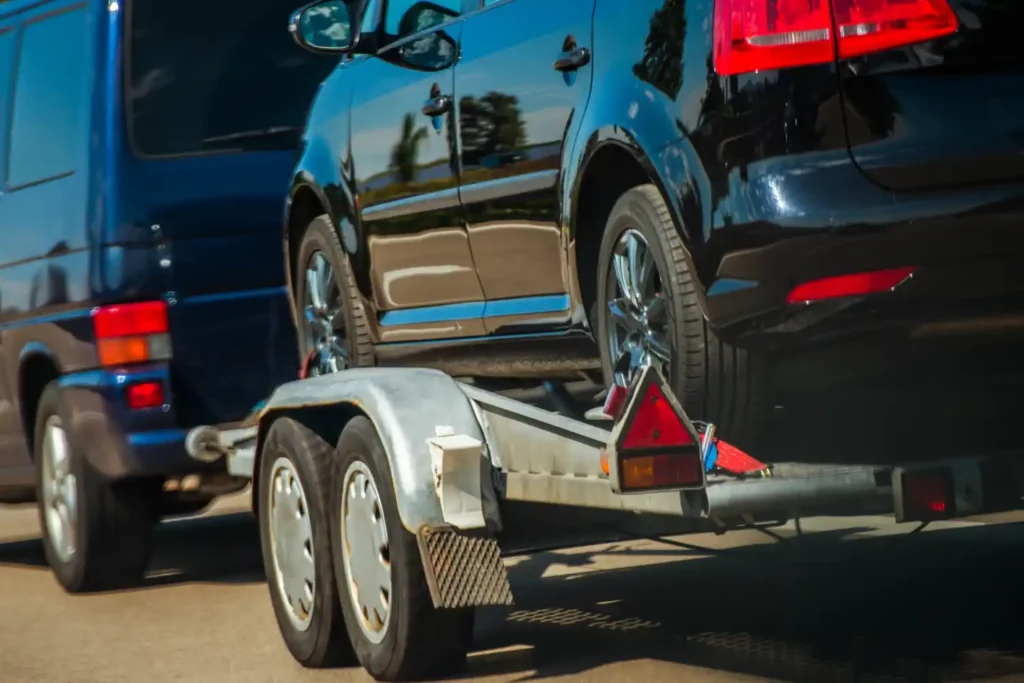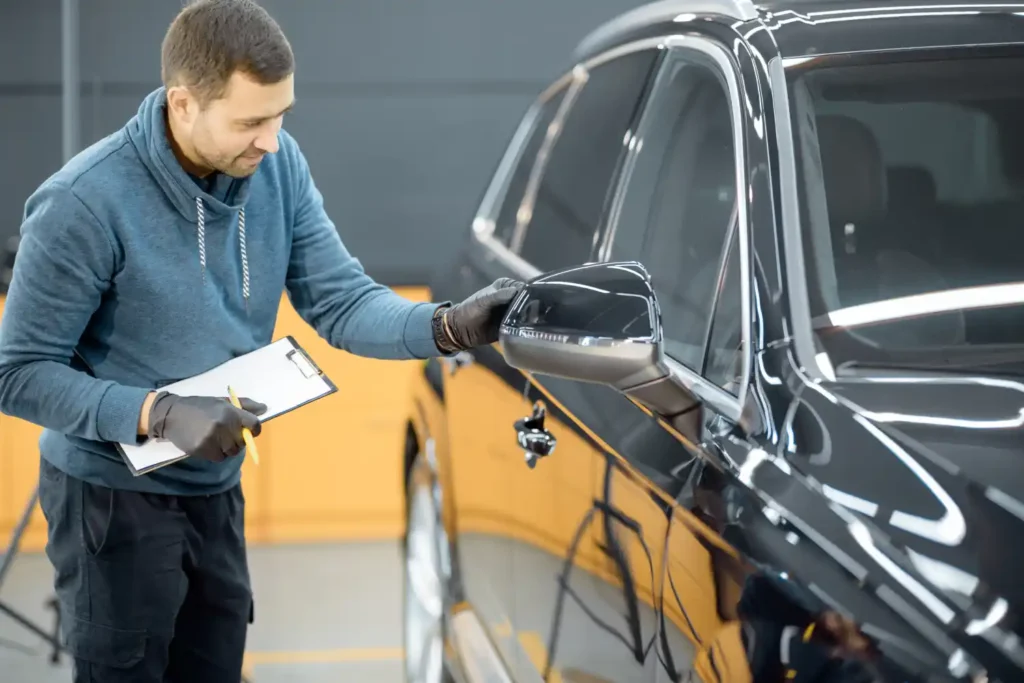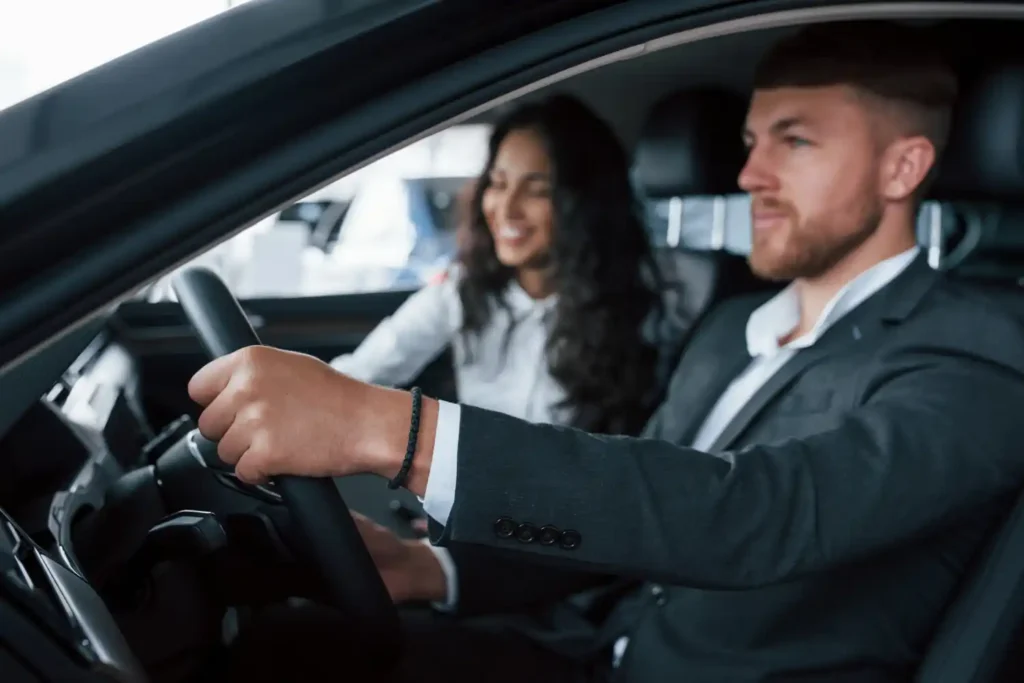
Buying a used car from abroad can be a great opportunity to get a vehicle in good condition at an affordable price. However, many motorists are concerned about the hidden risks that can arise in such a transaction. Without the right information and a thorough check, they may fall victim to unfair dealer practices.
When choosing a car, it is important to pay attention to details such as mechanical damage, repair marks or corrosion. It is also essential to check the vehicle's history using the VIN number to avoid unpleasant surprises. In the following lines, we will look at the biggest risks and tips to ensure a successful purchase.
Buying a used car: The procedure
When buying a used car from abroad, it is important to focus on a few key aspectsto avoid potential problems.
Vehicle Condition Check
A pre-purchase vehicle health check includes a thorough examination of the exterior and interior. In particular, mechanical damage, signs of repairs and overall visual condition should be observed. Particular attention should be paid to:
- Depth of varnishA: Measurement will help detect possible repainting.
- Cracks on the glassA: You also need to pay attention to the windscreen, the front lights.
- Corrosion: Check the edges of the doors and the lower part of the bodywork.
Vehicle History
Obtaining the VIN number of the vehicle is key. Checking the VIN against online databases can reveal important information about previous accidents, flooding or theft.
Credibility of the Seller
The professional judgement of the dealer is essential. Verify the basic details through the Trade Register and find out if the seller has a good reputation. Don't forget that missing contact information in a listing can indicate potential problems.
Financial Costs
Before travelling abroad, it is wise to check all the fees associated with registering your vehicle. It is now important to keep track of planned expenses to avoid unpleasant surprises. Transport and vehicle operating expenses should also be taken into account.
Final Check

The final inspection of the vehicle before purchase should be thorough. The presence of water in the vehicle or the smell of moisture indicates possible problems. If there is any doubt, it is better to consider other options.
Paying attention to these factors can significantly reduce the risk of problematic transactions and ensure a quality purchase.
Important Documents And Information
There are a number of important documents and information to keep in mind when buying a used car from abroad. Evaluating them correctly can significantly affect the final registration and declaration process of the vehicle.
Vehicle Registration And Declaration
Registering a vehicle involves submitting a number of necessary documents. The main documents are the vehicle registration certificate, proof of roadworthiness and proof of valid liability insurance. It is also important to provide proof of identity and proof of payment of the administrative fee. Once these conditions have been met, the district transport office will assess the application. Importantly, if the vehicle is imported, a Certificate of Conformity (COC) must also be prepared. This will prevent problems during registration.
Arranging Translation of Documents
Every vehicle-related document submitted to the district office must be translated into Slovak. These documents include the technical licence, registration documents and the certificate of deregistration. The translations should be made by a certified translator to meet the requirements of the authorities. The purchase contract and invoice should also be in Slovak. After translation, the vehicle undergoes an originality check, which is mandatory for an imported car, to confirm its roadworthiness. The issuance of an Originality Check Protocol is essential, and the protocol must not be older than 15 days when the application is submitted to the office. Ensuring the translation and originality check will ensure the smooth running of the vehicle registration.
Vehicle Inspection And Testing

When buying a used car from abroad, emphasis is placed on thorough inspection and testing of the vehicle. These steps help to detect potential problems and ensure that the car you buy lives up to expectations.
Test Drive
The test drive is an integral part of the buying process. The driver should pay attention to steering firmness, braking and any unusual noises. It is important to test the car on a variety of surfaces to objectively assess its driving characteristics. A suitable route should include straight sections, bends and hilly terrain. During the driving process, it is helpful if the dealer is joined by a mechanic or specialist who can provide an expert opinion. Every aspect, including the vehicle's acceleration and braking response, should be carefully monitored.
Checking the VIN Number
Checking the VIN number is essential to verify the authenticity of the vehicle. The VIN number is a unique identification number that can reveal the history and origin of the vehicle. The correctness of the VIN number needs to be checked in several places, including the engine compartment and documents such as the registration certificate and the vehicle registration card. It is advisable to check the VIN against online databases that provide information on events such as accidents, thefts or major repairs. This will reduce the risk of buying a vehicle with previous problems.
Vehicle History Review
A review of the vehicle's history provides valuable information on its previous maintenance and use. It is important to obtain information about previous owners, accidents the vehicle has had and regular maintenance. Sources such as vehicle history reports allow you to demonstrate the true condition of the car. If the history shows frequent repairs or serious accidents, this may indicate hidden problems. This information is crucial in the buying decision and highlights the need for a thorough analysis before purchasing a vehicle.
Risks and Fraud
There are many risks and scams when buying a used car from abroad. These factors can lead not only to a loss of money, but also to problems with registering and using the vehicle.
Hundred Kilometres
Mileage is a significant problem when buying used cars. Sellers may manipulate odometers to inflate the value of a vehicle. Reasons for mileage rollovers include the desire to maximize profit and to hide the true condition of the vehicle. Today, technologies such as service histories and online databases exist that allow potential buyers to verify previous mileage. Checking the VIN number at multiple locations, as well as comparing the data to service history, can reveal discrepancies. If a vehicle is found to have rolled up miles, it may indicate other hidden problems, significantly reducing its value and safety.
Vehicles For Sale In Foreclosure
Selling vehicles in foreclosure is one of the most serious risks of buying a used car. Many owners try to get rid of the vehicle before it is repossessed. It is important to check whether the seller has any obligations to the state or bailiffs. Equally, if the bailiff cannot find the vehicle, the police may intervene and seize the car. To protect against such situations, it is advisable to purchase a vehicle from reputable dealers who have the expertise and experience to detect potential fraud.
Administrative Matters After Purchase

When buying a used car from abroad, it is essential to go through the administrative issues that are important for the correct registration of the vehicle.
Technical and Emission Control
A roadworthiness and emissions test is required for all imported vehicles unless there is a valid protocol from the country of origin. The roadworthiness test ensures that the vehicle is roadworthy, assessing the mechanical and safety aspects of the car. The emissions inspection verifies that the vehicle meets environmental standards. The fees for these checks are approximately €40 for the technical check and €30 for the emission check. After successfully passing both checks, owners receive a Technical and Emission Inspection Report, which is the basic document for registering the vehicle. In cases where owners prefer to save time, they can combine the technical and emission check with the originality check, as many offices carry out several checks at the same time.
Obtaining Compulsory Insurance
Obtaining compulsory insurance is another key step in registering a used car. Insurance is required before you can register your vehicle. Insurance can only be obtained based on the VIN number of the vehicle, in many insurance companies. A certificate of compulsory insurance is required to prove that the vehicle is insured against liability. The cost of compulsory insurance can vary based on the type of vehicle and its history, so it's a good idea to search the market for different quotes. If all of the previous conditions are met, the insurance will make it easier and faster to process the vehicle registration.
Conclusion
When buying a used car from abroad, attention to detail is key. A thorough vehicle inspection and a history check are essential to protect against fraud. Focusing on the dealer's credibility and checking all paperwork will ensure a smooth registration process.
Don't forget the important documents and certified translations that are needed for a legal transfer of ownership. A test drive and a vehicle condition check will provide valuable information about the vehicle's performance. These steps will not only protect your investment, but also ensure that your new vehicle is reliable and safe for the road.